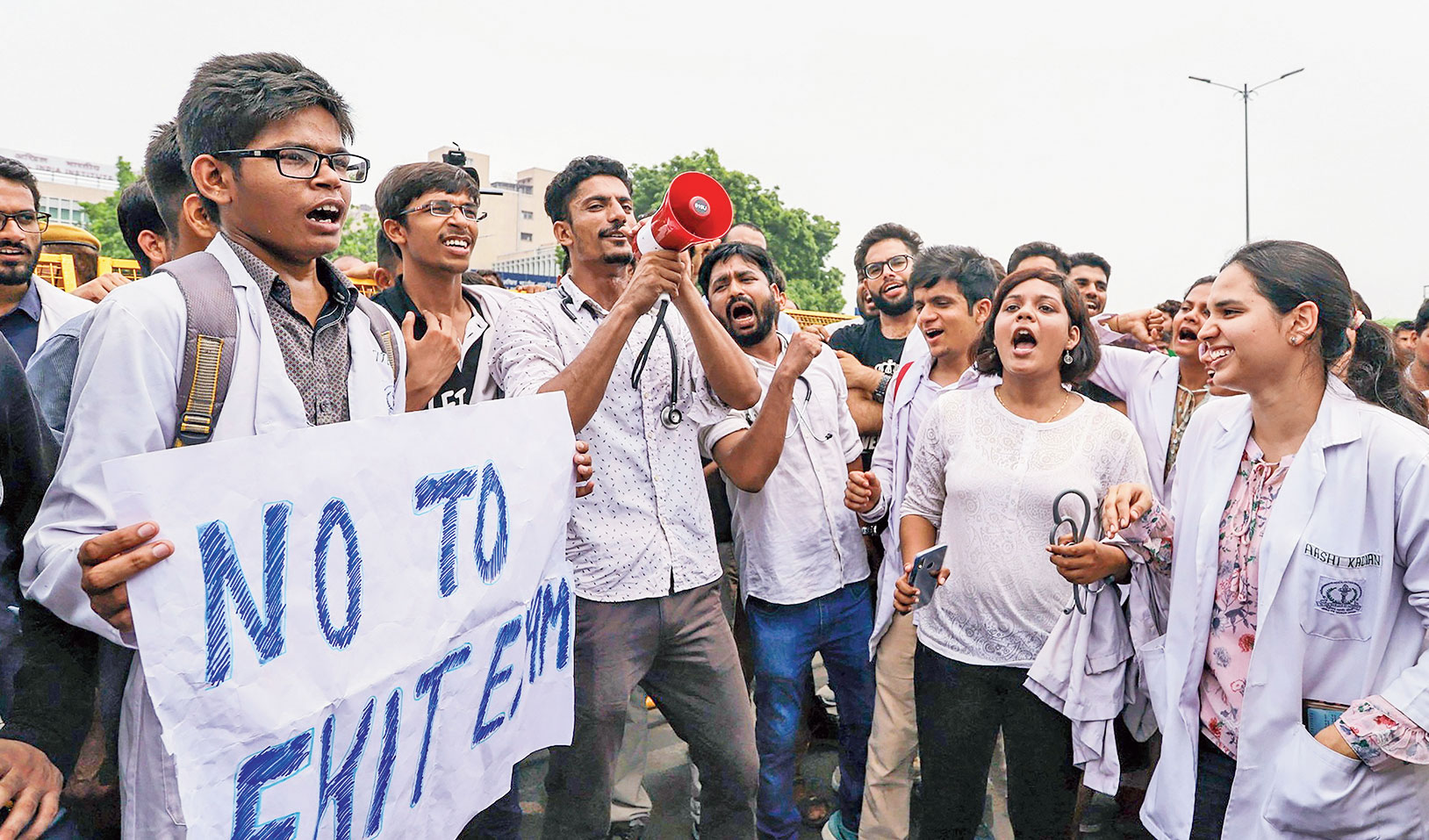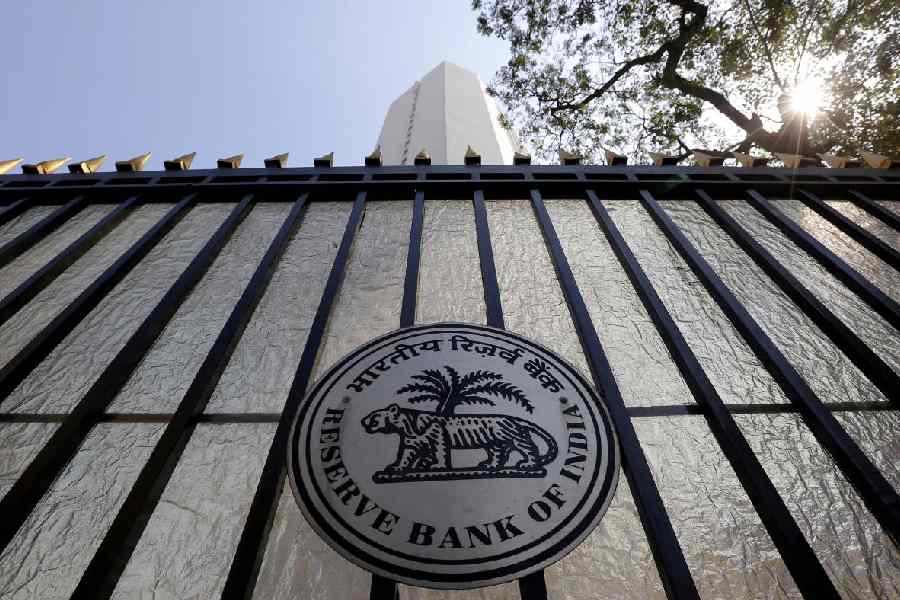An association of doctors on Sunday decided to withdraw its strike against proposed legislation to create a new medical regulatory structure but others resolved to intensify their protests, signalling fissures within India’s medical community.
The Resident Doctors Association at the All India Institute of Medical Sciences, New Delhi, backed down from its strike call following assurances from Union health minister Harsh Vardhan at a 7am meeting.
Association office-bearers said they had met the minister, health secretary Preeti Sudan and other health officials and expressed their fears about the National Medical Commission Bill, 2019.
They said they had decided to withdraw the strike and resume services “with immediate effect” after the minister explained the bill’s objectives and promised their fears would be “duly addressed” in the rules governing the National Medical Commission.
But the Federation of Resident Doctors Association India, a nationwide body, said it was still opposed to the bill.
“We are looking for legal options to challenge this. We are in touch with lawyers. We’ll decide what to do soon,” Sumedh Sandanshiv, the organisation’s president, told The Telegraph.
Resident doctors across the country had earlier this week joined the Indian Medical Association in opposing the bill, which both Houses of Parliament passed last week.
The doctors had expressed concern that the bill’s provisions would allow private medical colleges to charge whatever fees they wanted for half their seats. They had also opposed a provision in the bill that allows “community health providers” to practise aspects of modern medicine.
Harsh Vardhan has indicated that the state regulatory panels would be authorised to impose caps on the fees charged by the private medical colleges.
He has also said that who qualifies as a community health provider and what they would be allowed to do would be decided after talks with the medical community.
Many public health specialists believe that India urgently needs cadres of mid-level healthcare providers in areas bereft of medical graduates. Such mid-level healthcare providers could screen patients in primary care settings and refer them for higher-level medical care, if necessary.
But office-bearers of the Indian Medical Association, the country’s largest body of doctors, met on Sunday for “an extended action committee meeting” to discuss their response to the minister’s assurances.
“We are not withdrawing our protest — the IMA plans to intensify its agitation,” Harjit Singh Bhatti, vice-president of the association’s young doctors’ network, told this newspaper.
“The statement from the RDA (Resident Doctors Association) represents only the view of the AIIMS resident doctors,” said Bhatti, who was once president of the RDA.
The statement from the Resident Doctors Association of the AIIMS was released by the health ministry’s public outreach channel.










